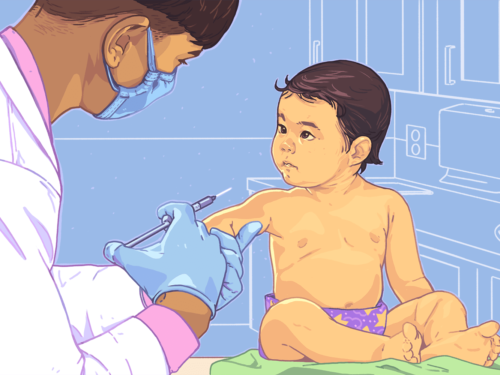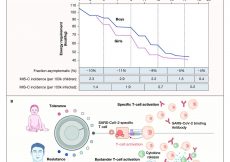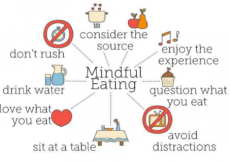December 20th, 2021
When the FDA and CDC approved Pfizer’s COVID-19 vaccine for emergency use in 5 to 11-year-olds last month, we asked a logical question:
Now that kids who are 5 and over are getting the vaccine, much to the relief of pediatricians and parents everywhere, when will their younger siblings be able to get their chance for immunological protection against SARS-CoV-2?
In September, Pfizer’s CEO promised results of clinical trials in kids under 5 would be available by the end of the year. On Friday, Pfizer broke some disappointing news: Parents will have to wait another few months before there is enough data to confirm with confidence that the vaccine is effective and safe for their younger children.
The Pfizer vaccine is authorized in the United States for people age 5 and older. But it said on Friday that its study in children between the ages of 2 and 4 who were given two 3-microgram doses of the vaccine found it did not create the same immune response that a larger dose of the vaccine had in older children.
You may recall that everyone 12 years and up receives 30 micrograms with each dose of the 2-dose Pfizer vaccine. Kids between 5 and 11 get a smaller, 10 microgram dose each time. For kids under 5, vaccine researchers have been testing an even lower amount — 3 micrograms per dose — and the results haven’t been impressive.
While it was hoped the clinical trial would be completed by now, Pfizer is now altering its study design. Researchers will add a third dose to the vaccine regimen in hopes of a better immune response in this younger age group. They expect to have positive results on the safety and efficacy of the 3-dose series by springtime.
There was also unsettling news last week that two doses of Pfizer and Moderna vaccines do not provide enough protection against the new Omicron variant. Better news is that a third dose does boost the immune response up to protective levels.
As Omicron rushes in while Delta spikes, and we all make plans to celebrate the Christmas and New Year holidays safely, this isn’t news parents of young children (and grandparents who plan to visit with them) wanted to hear. But it’s news we will all have to live with.
Those of us wishing to avoid COVID-19 and all its serious complications this winter will be well served by observing these remarkably simple public health recommendations (all we can do is say “Please”):
• Get vaccinated and boosted — 2 doses of mRNA vaccine PLUS a booster, or a single dose of the J&J vaccine PLUS a booster will leave you fully vaccinated against the Omicron variant. A booster dose will also provide better protection against the still-raging Delta variant. Remember, vaccinated people can still get a breakthrough case if they are infected, but the risk of getting very sick and dying from COVID-19 is MANY times worse in those who remain unvaccinated.
• Avoid crowded indoor public spaces, especially if you are with people whose vaccine status and health histories are unknown to you, and you can’t ensure a safe distance from others.
• Wear a face mask properly in every public indoor setting where you don’t know the vaccine and health status of the people around you.
• Stay at home if you aren’t feeling well, especially with symptoms consistent with COVID-19 (nasal congestion, cough, headache, fever, fatigue). Keep your kids home if they aren’t feeling well.
• Follow CDC guidance on testing, quarantine and isolation if you have been exposed to someone with COVID-19, or you test positive for the virus.
• GET A FLU SHOT!
• Please talk to your pediatrician if you have questions or concerns about your child’s health during the pandemic.




































